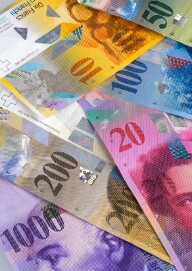The Swiss franc rallied against some of its rivals intraday but has lost its gains by now, similarly to the Japanese yen. It looks like currently traders are less interested in safe currencies.
Yesterday, the Swiss National Bank released its Quarterly Bulletin. The central bank reiterated that “the currency remains highly valued,” therefore “the SNB will remain active in the foreign exchange market as necessary.” The bank noted that the political turmoil in Italy increased upward pressure on the franc:
Following the March assessment, the Swiss franc initially depreciated slightly against the US dollar and the euro. However, in light of political uncertainty in Italy, there has since been discernible countermovement, particularly against the euro. The situation on the foreign exchange market thus remains fragile, and the negative interest rate and the SNBâs willingness to intervene in the foreign exchange market as necessary therefore remain essential. These measures keep the attractiveness of Swiss franc investments low and ease pressure on the currency.
The SNB revised its inflation forecast up for the near future but down for a longer term:
The new conditional inflation forecast for the coming quarters is slightly higher than it was in March 2018 due to a marked rise in the price of oil; this price rise ceases to affect annual inflation after the first quarter of 2019. From mid-2019, the new conditional forecast is lower than it was in March 2018, mainly due to the muted outlook in the euro area.
Now, traders wait for KOF Economic Barometer due for release tomorrow.
USD/CHF edged up from 0.9969 to 0.9982 as of 15:42 GMT today. EUR/CHF climbed from 1.1516 to 1.1556. GBP/CHF slid from 1.3069 to 1.3031 intraday but bounced to trade near the opening level later.
If you have any questions, comments or opinions regarding the Swiss Franc,
feel free to post them using the commentary form below.



Be First to Comment